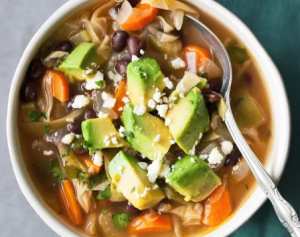
Low carbohydrate fruits are a fantastic way to eat healthier without sacrificing flavor. Most people love the natural sweetness of fruits but struggle to incorporate them into a low-carb lifestyle. The good news? These fruits strike the perfect balance between taste and nutrition. Whether you’re managing your weight, controlling blood sugar, or aiming for a healthier lifestyle, low carbohydrate fruits can be your go-to choice. Let’s explore why these fruits deserve a place in your diet.
The Importance of Low Carbohydrate Fruits
Low carb fruits are a type of fruit you need to keep in your diet while keeping your carb intake down. They enable you to savor the natural sweetness of fruits without hindering your health objectives. Here’s why they should be in your meal plan.
Benefits of a Low-Carb Diet
There are very good reasons low-carb diets have become popular. They stimulate your body to burn fat for energy instead of carbs, which boosts weight loss and enhances metabolic health. The lower to no-carb part helps keep your blood sugar levels stable, reduces the need for snacking, and provides you with stable energy levels, so you can also crush it in the gym. For people who are on certain diets such as keto or Atkins, low-carb fruits work as an argument.
The Role of Low Carbohydrate Fruits Fruits in a Low-Carb Lifestyle
So much of what is said about fruit is taken out of context when talking about low-carb. Some contain lots of sugar but others are naturally low in carbohydrates and rich in fiber, vitamins and antioxidants. These fruits benefit your diet by delivering vitamins without affecting your blood sugar, which is why they’re a great option if you’re cutting back on your carb consumption.
How Low Carbohydrate Fruits Fit Into Low-Carb Lifestyle
To make the best decisions, it’s essential to know about carbohydrates in fruits. The overall carb count for fruits differs based on the type of fruit, as their natural sugars, fiber, and water content all vary.
Natural Sugars and Their Role
Fruits contain natural sugars such as fructose, glucose, and sucrose, which are what make them sweet. Although these sugars are healthier than processed sugars, they still contribute to the total carbohydrates you consume each day. But the fiber in fruit slows sugar absorption, helping to prevent sudden blood sugar spikes.
Low-Carb vs High-Carb Fruits
Fruits are not created equally in terms of carbs. Bananas and grapes are too high in sugar for low-carb eating, for example. On the
Best Low Carbohydrate Fruitsother hand, fruits such as berries, avocados, and tomatoes are much lower in carbs and can offer a wide range of health benefits. Knowing the difference can help you select the right fruits for your needs.
Best Low Carbohydrate Fruits
Here’s a breakdown of some of the best low-carb fruits you can add to your diet. Not only are these fruits tasty, but they also provide healthy nutrients to aid your body.
Avocados
Avocados, one of the most well-liked low-carbohydrate fruits, and for good reason. They’re creamy, versatile and full of nutrients.
Nutrients Present and its Advantages
Well, avocados are low in carbs and high in healthy monounsaturated fats. They’re also high in potassium, fiber and vitamins K, E and B6. This alone will make you feel full longer, thus aiding weight management since you’ll be less inclined to snack when avocados are included in your meals.


Berries
We all know that berries are flavour-packed nutritional powerhouses. They’re sweet and tart, packed with antioxidants and naturally low in carbohydrates.
Some Different Types of Berries and Why They’re Low Carb
1- Strawberries: This delicious berry is low in carbs, but high in vitamin C, which is fantastic for your immune system.
2- Raspberries: Loaded with fiber, the raspberries help with digestion and maintain the blood sugar levels.
3- Blackberries: High in vitamins C and K, which are beneficial for healthy skin and bones.
Fresh stirred into yogurt or just as is, berries provide ample fullness without the carbs.
Watermelon
Watermelon is a summer classic, delivering hydration and sweetness in a relatively low carb package.
Why Watermelon Is a Hydrating, Low-Carb Snack
Watermelon is a hoot at 90 percent water, to keep you hydrated, while its packed with vitamins A and C. It’s a nice light guilt-free snack for when the weather gets warm. All that plus it’s naturally low in calories, making it a great option for
Tomatoes
Tomatoes might come as a surprise as a fruit, but they’re an excellent low-carb choice with endless culinary applications. They are a low-carb fruit powerhouse!
Tomatoes are low in carbohydrates and high in lycopene, an antioxidant that is good for the heart and helps to reduce inflammation. They can be used in salads, sauces, soups or even roasted as a snack. This versatility means they are a must-have in any low-carb kitchen.
Cantaloupe
Cantaloupe is a tender sweet fruit that’s low in carbs and rich in nutrients.
A Sweet and Low-Carb Treat
Melon is high in vitamins A and C, which promote healthy skin and immune function. Its natural sweetness makes it a great alternative for high-carb desserts. We recommend pairing cantaloupe with a handful of nuts for a satisfying, balanced snack.
“Here are some tips for adding Low Carbohydrate Fruits to your diet:
Consuming low carbohydrate fruits can be enjoyable as they can be introduced into your daily diet. Below are some strategies to make it easier:
Create Balanced Meals
Pair low-sugar fruits with protein sources, such as chicken, eggs, or cheese, for a complete and satisfying meal. For instance, top your morning omelet with avocado slices or serve tomatoes with grilled fish.
Snack Ideas
Fruits are terrific low-carb snacks. Savor a few berries with Greek yogurt or top avocado slices with salt and lime juice for a fast, flavorful snack.
Add Them to Smoothies
Smoothies need low-carb fruit because they are delicious. Shake up some strawberries, avocado, spinach, and almond milk for a creamy, nutrient-dense beverage. Sprinkle in a touch of cinnamon for added taste, as well.
Common Myths About Low-Carb Fruits
People underestimate low-carb fruits, and there are many myths that discourage people from consuming them. Let’s bust some myths.
Myth 1- Fruits Lacking Nutrition Are Low-Carb
Low-carb fruits are super nutrient-dense. They’re rich in fiber, vitamins and antioxidants that support overall health. Don’t be fooled by the low-carb label—they’re just as good for you, if not better, than their high-carb equivalents.
Myth 2: You Can’t Eat Fruit on a Low-Carb Diet
This is one of the biggest myths. You absolutely can eat fruit on a low-carb diet; the key is choosing fruits that are naturally low in carbs, such as berries, avocados, and tomatoes.
Benefits of Low Carbohydrate Fruits
Low-carb fruits offer a range of health benefits that make them a valuable addition to any diet.
Helps with Weight Management
Low-carb fruits are low in calories and high in fiber, keeping you full longer and reducing the temptation to overeat. This makes them an excellent choice for weight loss or maintenance.
Regulates Blood Sugar
Low carbohydrate fruits prevent sudden blood sugar spikes, making them ideal for people with diabetes or those on a ketogenic diet. They provide a steady source of energy without causing sugar crashes.
Improves Digestive Health
The fiber in low-carb fruits supports a healthy gut by promoting regular bowel movements and preventing bloating. It also helps maintain a healthy microbiome, which is essential for overall well-being.
Conclusion: Low Carbohydrate Fruits
Low carbohydrate fruits are a delicious and nutritious way to stay healthy without compromising your dietary goals. From creamy avocados to sweet cantaloupe, these fruits provide essential nutrients, natural sweetness, and versatility in your meals. By incorporating them into your diet, you can enjoy the flavors you love while keeping your carb intake in check. So go ahead—indulge in nature’s finest low-carb fruits and experience the benefits for yourself!
FAQs
What are the best low carbohydrate fruits?
Some of the best low-carb fruits include avocados, berries, watermelon, tomatoes, and cantaloupe.
Are low-carb fruits suitable for diabetics?
Yes, low-carb fruits are perfect for diabetics as they help maintain stable blood sugar levels.
Can I eat low-carb fruits daily?
Absolutely! Include low-carb fruits in your daily meals, but stick to moderate portions.
How can I include low-carb fruits in a keto diet?
Pair low-carb fruits with healthy fats like nuts or cream for keto-friendly snacks and meals.
Are low-carb fruits better than high-carb fruits?
Low-carb fruits are ideal for managing carb and sugar intake, but both types have unique health benefits. Choose based on your dietary needs.








